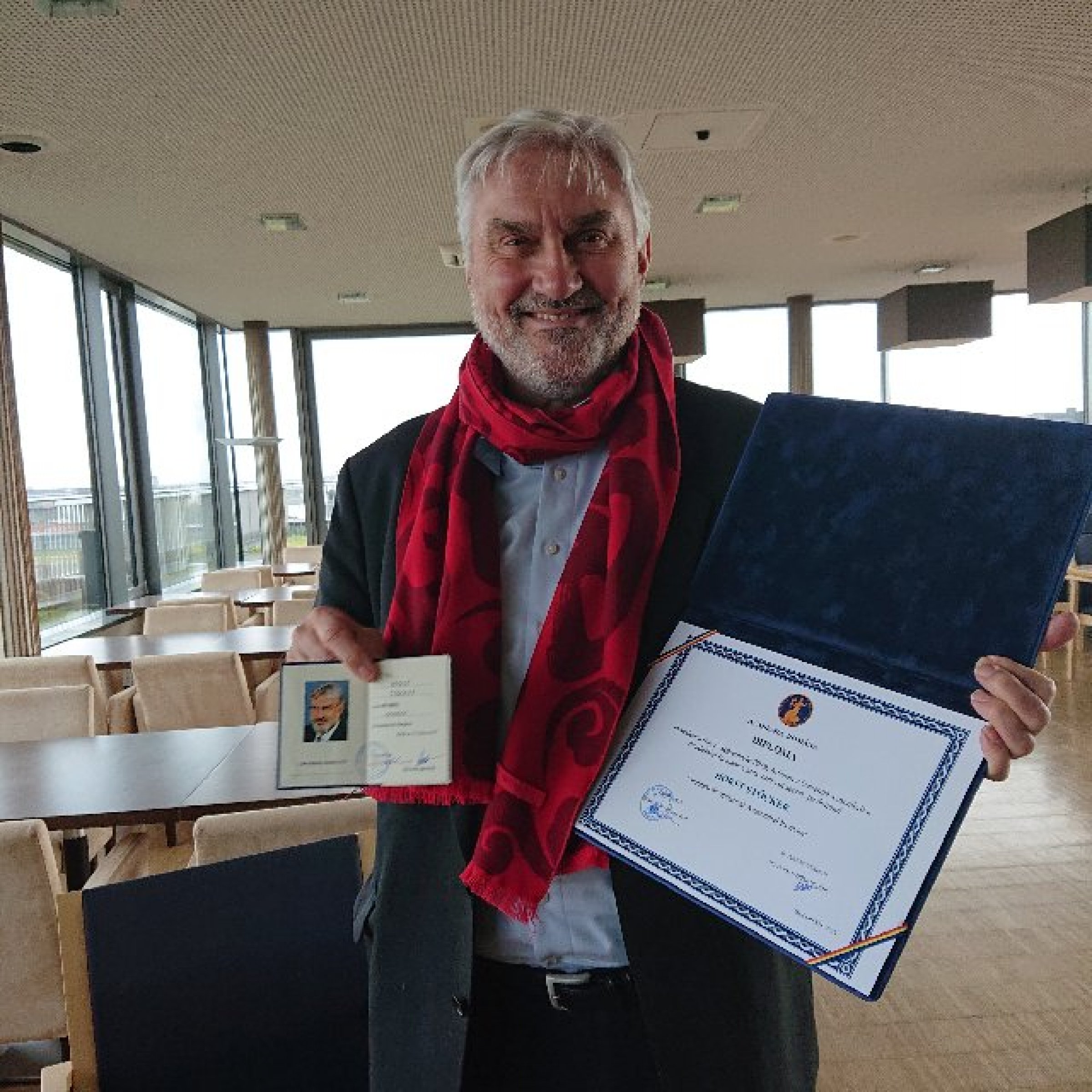April 20, 2020
Horst Stöcker becomes honorary member of the Academia Română
The certificate was now handed over by post
The Romanian Academy of Sciences (Academia Română) has appointed Prof. Dr. Dr. h.c. mult. Horst Stöcker as honorary member in recognition of his work on hot, dense elementary matter in heavy ion research and astrophysics, as well as his many years of commitment to the international scientific community. He is thus one of 91 foreign scientists who are entitled to bear this title.
The Romanian Academy (Romanian Academia Română) is the highest forum of science and culture in Romania. It was founded in 1866 and has as its goal the promotion of Romanian culture, language and literature, the maintenance of the Romanian language dictionary and the promotion of science.
Horst Stöcker, born in Frankfurt am Main, received his doctorate in 1979 at the Frankfurt School of Theoretical Physics under Walter Greiner. He went to Berkeley as a DAAD- Fellow, followed calls to Michigan State University and to the Institute for Theoretical Physics at Goethe University and was appointed Judah M. Eisenberg Professor Laureate in 2004. From 2007 - 2015 he served as Scientific Director of GSI Helmholtzzentrum für Schwerionenforschung GmbH.
In his career to date, Horst Stöcker has published about 500 publications, which have been cited about 50,000 times, supervised about 50 doctoral students and filed 5 patents.With his extraordinary personality, he is a trademark of theoretical physics in Frankfurt. He is involved in much more than just research and is strongly committed to the international networking of scientists.
As founding chairman of the FIAS, Horst Stöcker played a decisive role in the development of our institute and is still a Senior Fellow and member of the FIAS board.
For his excellent research and his commitment to the scientific community he has been awarded several prizes, including an honorary doctorate from the Russian Academy of Sciences, the Order of Merit of the Prime Minister of the State of Hesse and as a Fellow of the European Physical Society, EPS.
